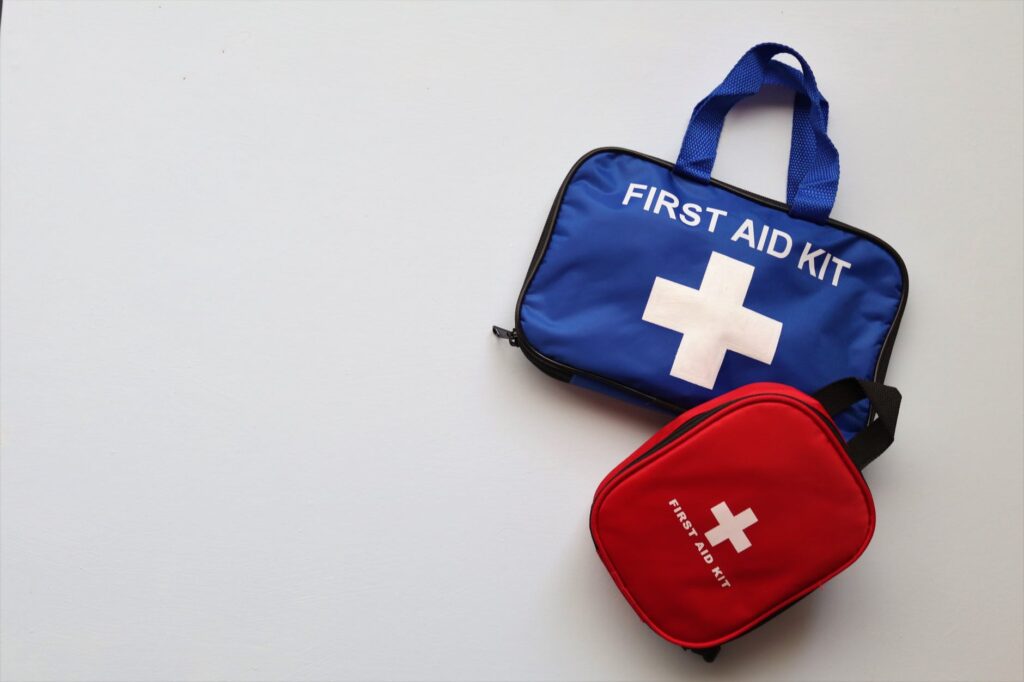Traveling is fun. But if you’re a travel veteran, then you must always be prepared for any medical issue in your journeys. Small or severe, bearing in mind that injuries are inevitable and can rise any time anywhere without prior notice.
Of course, it’s great to explore and have fun learning new things. But it’s wiser to know how you could take care of yourself and others in case of any health emergency. Thus, it is important to learn basic first aid training online to ensure safety during the trip.
In this post, we’ve outlined five first aid skills that will help you prepare for any medical issue while traveling.
But first, let’s understand what first aid entails.
What’s first aid?
First aid is the immediate emergency care given to an injured person to minimize the injury, stop the bleeding or keep the victim alive as you await professional medical care.
It’s essential to have some basic first aid skills to always be prepared to offer assistance to others or save yourself. And it’s even better if you could design your first aid kit for your traveling purposes.

Here are five essential first aid skills travelers should learn
1. Cleaning and addressing wounds
There are several kinds of injuries that you can never avoid. For once, you’ll have to experience some common ones like scrapes or cuts, all of which may result in some blood traces.
Regardless of the degree of the injuries, it would be best if you can help address or manage the wound to help prevent the pain from worsening. Remember, cleaning and addressing wounds is the first step to recovery.
Therefore, you must learn how to address wounds and know what to apply in some lacerations. Also, equip yourself with wound wrapping skills that would ensure you make clean and uninfected wounds.
2. Learn to control or stop bleeding.
As discussed earlier, you may never know what extent of injury you may encounter. So what happens when you meet someone excessively bleeding?
Of course, knowing how to curb or stop the bleeding would make a difference in saving the victims’ lives. Therefore, before you gear to travel anywhere, it would be best if you know how to arrest bleeding.
Learn how to make a tourniquet and apply pressure above the cut. Should you encounter some bleedings, you’ll be able to save the situation before the paramedics arrive. Better still, you can raise the bleeding area to reduce heavy bleeding.
3. Know how to apply Heimlich Maneuver
There is no age that is above choking though it might be rampant in babies. However, you may never know when any food you’re taking may choke you or your friends.
But, you can be the savior if you how to conduct Heimlich Maneuver to dislodge whatever is blocking one’s airways. Remember, when someone is choking or having their airwaves blocked, they can have brain damage if they’re not attended to.
Therefore, it would be better if you know how to identify choking plus how to conduct this first aid skill since it may help you save a life.
4. Learn how to conduct CPR
CPR is one of the most invaluable skills you must equip yourself with before you board your next flight for any vacation.
The skill would help salvage emergencies like a heart attack or cardiac arrest. Therefore, you need to learn how to administer CPR, especially if you or your traveling friend and family have a heart or cardiac arrest history. Such skills are not only for your benefit but the society at large.
You can anytime encounter a victim with breathing difficulties or attacks, and you’ll be able to imitate CPR to help the patient’s blood flow. Thus you’d saved a life. Therefore, you must know the basic steps of conducting CPR to help you excel at passerby and bystander CPR.
5. Know how to sutures and stitches
You may be lucky if you don’t find yourself in situations where you have to perform stitches. However, you may never know when circumstances would demand your help. But it would help if you were to prepare yourself to perform closure up should you encounter a severe wound or cut that needs stitching.
Finally, you should be able to spot a concussion. Because you may be traveling, you experience some slight injuries that might not seem severe but would be worth checking. Otherwise, they would result in long-term effects on the brain. Seek any medical attention for
Conclusion
Before you decide to travel to any place of your choice, it would be an excellent idea to know how you can handle emergencies. No matter how severe or minor injuries could be, you can have the chance to save your life.
Therefore, it would be better if you know how to clean and address wounds, apply Heimlich Maneuver, or learn how to control and stop bleeding. And most importantly, knowing how to conduct CPR could help save a life in a heart attack and some other emergencies.












